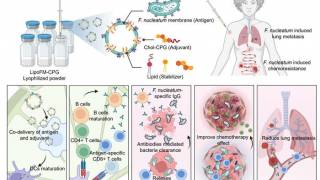How To Improve HPV Vaccination Rates For Everyone

New cancer research from the Boston Medical Center (BMC) found that offering educational training to pediatric and family medicine providers about the importance of human papillomavirus (HPV) vaccines, improves the overall rate of HPV vaccinations.
The Development of Systems and Education for HPV (DOSE HPV) is a multilevel inter-professional provider training program aimed at improving HPV vaccination rates.
When combined with healthcare systems changes, including starting an HPV vaccination series before the age of 11, vaccinations can reduce future HPV-related cancers.
Published in Pediatrics on June 1, 2020, this study results show improvements at each stage in the HPV vaccination series.
The program educates providers on how best to communicate with parents and caregivers about HPV vaccinations, as well as how to use data in their practices to address barriers to access and completion rates of the vaccine series for their patients.
Importantly, improvements were sustained beyond the conclusion of the intervention period, demonstrating that these types of programs could be used to help produce long-term increases in HPV vaccination rates.
According to the Centers for Disease Control and Prevention (CDC), HPV affects nearly 80 percent of adults, and while some strains of the virus are low-risk, several strains can lead to cancer.
HPV vaccination in early adolescence can prevent HPV infection and is estimated to prevent up to 90 percent of cervical cancers.
Cervical cancer disproportionately affects minority women, with Black women being twice as likely as white women to die from the disease.
Because HPV vaccination can stop infections that could lead to cancer, universal HPV vaccination has the potential to reduce these disparities.
“The HPV vaccine has the potential to decrease the rates of six different types of cancer, but rates remain below national goals in the United States,” says Rebecca Perkins, M.D., MSc, an obstetrician and gynecologist at BMC, and principal investigator of this research study.
“Programs that produce sustained increases in HPV vaccination rates could help reduce rates of HPV-related cancers nationwide.”
“As a gynecologist, I am particularly interested in the potential of HPV vaccination to reduce racial disparities in cervical cancer incidence and mortality,” concluded Dr. Perkins press statement.
In this randomized trial, information from 16,136 individuals between the ages of nine and 17 years-old from five pediatric primary care or family medicine practices was included in the research.
At each intervention site, data about the pre and post-intervention HPV vaccination series initiation and completion was analyzed for patients with at least one visit to a clinical site and one HPV vaccination dose or a completed HPV vaccine series.
The vaccine series initiation increased from 75 percent before the intervention to 90 percent after the intervention; the entire series completion rate increased from 60 percent before the intervention to 69 percent after the intervention.
Importantly, rates continued to rise for 6-18 months after the intervention was completed.
Given the routine recommendation of vaccination of 11 to 12 year-olds, this group was analyzed separately, with a vaccine initiation increase from 83 percent before the intervention up to 93 percent afterward.
Vaccine series completion rates increased from 54 percent pre-intervention to 69 percent post-intervention.
The key program components included educating providers on how to better communicate with families, decreasing missed opportunities for vaccination, and beginning the HPV vaccine series prior to age 11.
Recently, the U.S. Food and Drug Administration (FDA) announced on June 12, 2020, an expanded indication for the Gardasil 9 vaccine for the prevention of cancers caused by HPV types 16, 18, 31, 33, 45, 52, and 58.
This indication extension for Gardasil 9 should reduce future throat, head, and neck cancers.
The CDC now recommends 11 to 12-year-olds get 2-doses of HPV vaccine—rather than the previously recommended 3-doses.
Funding for this study was provided by the American Cancer Society Research Scholar grant. No conflicts of interest were disclosed.
Boston Medical Center is a private, not-for-profit, 514-bed, academic medical center that is the primary teaching affiliate of Boston University School of Medicine.
Vax Before Cancer publishes HPV vaccine news.
Our Trust Standards: Medical Advisory Committee

























